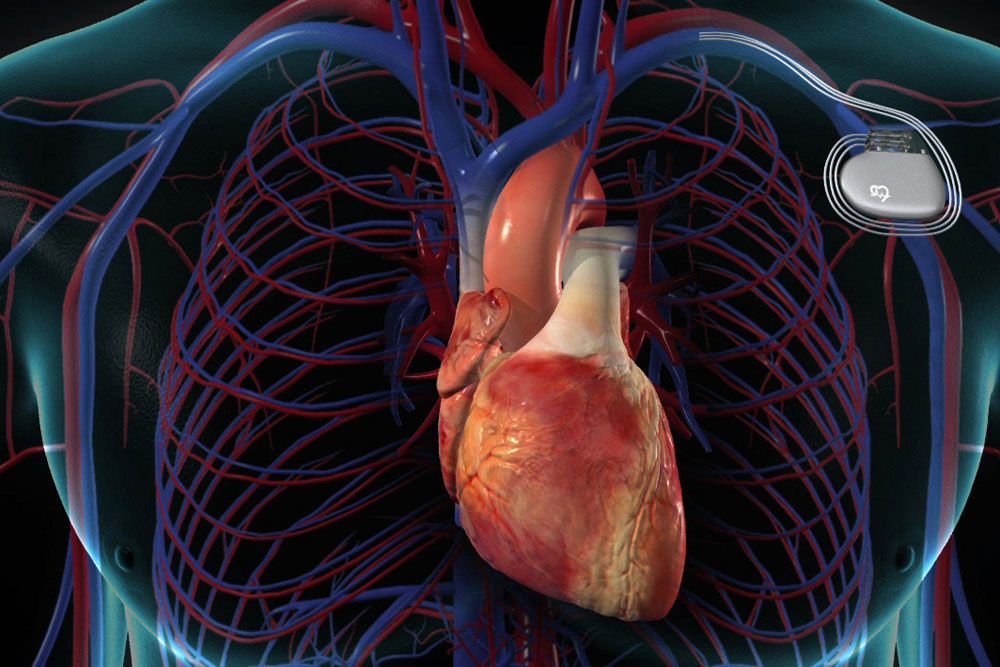A defibrillator is a medical device that restores a normal heartbeat by sending an electric pulse or shock to the heart. It is also used to prevent or correct an arrhythmia, a heartbeat that is uneven, too slow, or too fast. At Florida Cardiology Associates LLC, we provide advanced defibrillator services at our clinics at Heart and Rhythm Institute, Cardiovascular Institute of Trinity, HCA Florida Trinity Hospital, and Morton Plant Northbay Hospital, Florida, ensuring patients receive comprehensive and effective cardiac care.
Recognizing Symptoms That May Require a Defibrillator
A defibrillator may be recommended if you experience symptoms of severe arrhythmias or other heart conditions. Common symptoms include:
- Palpitations or rapid heartbeats
- Dizziness or lightheadedness
- Fainting or near fainting
- Shortness of breath
- Chest pain or discomfort
- Fatigue or weakness
Why a Defibrillator is Necessary
Defibrillators are crucial for patients at high risk of sudden cardiac arrest due to severe arrhythmias. These devices can be life-saving by promptly restoring a normal heart rhythm and preventing the heart from stopping suddenly. A defibrillator can significantly improve survival rates and quality of life for individuals with conditions such as ventricular tachycardia or ventricular fibrillation.
Early intervention with a defibrillator can prevent fatal cardiac events. Implantable cardioverter-defibrillators (ICDs) continuously monitor the heart and deliver shocks if they detect life-threatening rhythms. This continuous monitoring and immediate response are vital for managing high-risk patients effectively.
The Defibrillator Treatment Process
Our defibrillator treatment process is designed to be thorough and patient-centered. The steps involved include:
- Initial Consultation: Your cardiologist will review your medical history, discuss your symptoms, and determine if a defibrillator is appropriate.
- Preparation: You will receive specific instructions for the procedure, including fasting and medication adjustments.
- Implantation Procedure: Under local anesthesia, a small incision is made, and the defibrillator is implanted under the skin, usually near the collarbone. Leads are connected to the heart.
- Testing the Device: The device is tested to ensure it works correctly and effectively, sensing and treating arrhythmias.
- Recovery: You will be monitored for a few hours or overnight. Most patients can go home the next day with specific care instructions.
Preventing Cardiac Arrhythmias
Preventative measures are essential for maintaining heart health and reducing the risk of severe arrhythmias. Adopting a heart-healthy lifestyle, including a balanced diet, regular exercise, and avoiding smoking, is crucial. Managing underlying conditions such as high blood pressure, diabetes, and high cholesterol also plays a vital role in preventing arrhythmias.
Regular medical check-ups and screenings are vital for early detection of potential issues. By staying proactive with your heart health, you can significantly reduce the risk of developing severe cardiovascular conditions and maintain overall well-being.
Improving Life Quality with a Defibrillator
Patients who receive a defibrillator generally have a positive outlook for managing and treating severe arrhythmias. This device provides continuous monitoring and immediate response, significantly improving survival rates and quality of life. At Florida Cardiology Associates LLC, we are committed to supporting your heart health through advanced treatments and personalized care.
By following the guidance of our experienced cardiologists, patients can effectively manage their heart health, enhance their quality of life, and reduce the risk of future cardiac events. We aim to provide all our patients the best possible care and support.
Frequently Asked Questions (FAQs)
1. What is the difference between an ICD and a pacemaker?
An ICD is designed to prevent sudden cardiac arrest by correcting life-threatening arrhythmias, while a pacemaker primarily treats slow heart rates.
2. Is the defibrillator implantation procedure painful?
The procedure is performed under local anesthesia, and you may feel some discomfort during recovery, but it is generally well-tolerated.
3. How long does the defibrillator device last?
A defibrillator’s battery life typically ranges from 5 to 10 years, depending on usage. Regular follow-ups are necessary to monitor its function.
4. Can I exercise with a defibrillator?
Yes, most patients can return to normal activities, including exercise, but following your cardiologist’s recommendations is essential.
5. Are there any risks associated with defibrillators?
As with any medical procedure, there are risks, but they are generally low. Your cardiologist will discuss these with you before the procedure.
Take Proactive Steps for Heart Health with a Defibrillator
Scheduling a consultation for a defibrillator is a proactive step towards maintaining and improving your heart health. At Florida Cardiology Associates LLC, we are dedicated to providing comprehensive cardiovascular care with the latest diagnostic and treatment technology. Our team is here to guide you through the process and ensure you receive the highest quality of care.
Don’t wait for symptoms to worsen. Early detection and treatment are key to preventing serious heart conditions. Contact us today to book your consultation and take the first step toward a healthier heart.




